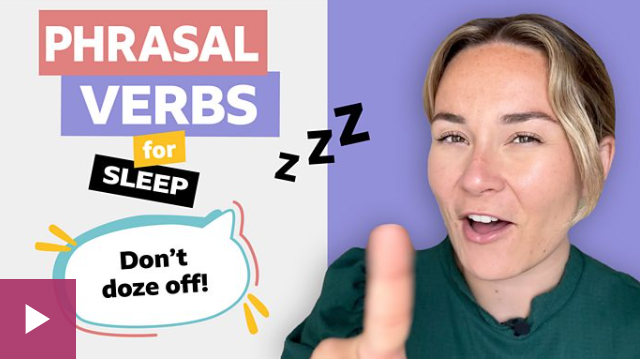Introduction
Georgie teaches you some phrasal verbs that can be used to talk about sleep.
Phrasal verbs mentioned
lie down
put yourself in a flat, usually horizontal position
- He lay down on the sofa to watch some TV and ended up falling asleep.
- The doctor asked him to lie down while she examined him.
stay up
continue to stay awake longer than you would usually
- We stayed up late watching movies until 2am.
- The kids wanted to stay up past their bedtime to see the fireworks.
doze/nod off
go to sleep slowly and gradually, often without intending to and often during the day
- He dozed off during the lecture because he was so tired.
- It doesn’t matter how interested Dad is in the film, he always nods off.
crash out
fall asleep rapidly because you’re very tired
- After the long hike, everyone crashed out as soon as they got back to the cabin.
- We crashed out at a friend’s place after the party because we were too tired to drive home.
sleep through (something)
sleep and not be woken up by a loud noise or some kind of disturbance
- She slept through her alarm and was consequently late for work.
- He slept through the thunderstorm and didn’t wake up until morning.
sleep on (something)
think about something while sleeping before making a decision
- I’m not sure about the offer. I’ll sleep on it and give you an answer tomorrow.
- Before making any decisions, it’s always good to sleep on it and think it over.
TOP TIPS!
- If you see the word ‘something’, it usually means the verb requires an object.
- If ‘something’ is in the middle of the phrasal verb, it means that it can be separated by the object (but doesn’t have to be).
- If ‘something’ is at the end of the phrasal verb, it means it cannot be separated.
- When a pronoun, e.g. him, her, them, is the object of a separable phrasal verb, it must go between the verb and the particle.
